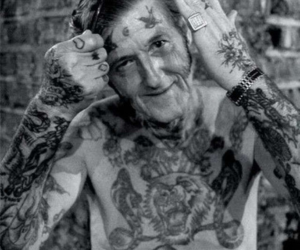
Insights from Tattoo Artist Jason Holloway, owner of Technicolor Tattoo Studio in Branson, Missouri
Tattoos have a rich history and hold a special place in many cultures worldwide. We had the opportunity to chat with Jason Holloway, the owner of Techicolor Tattoo Studio in Branson, MO, to uncover some intriguing facts about tattoos that go beyond the ink. From their origins to their therapeutic effects, here are some fascinating tidbits shared by this experienced tattoo artist:
1. More Women in the US Have Tattoos
According to a recent survey by Lightspeed Research, 59 percent of women in the United States have tattoos, surpassing the 41 percent of men who have inked themselves.
2. Unique Tattoo Ink Ingredients
In some cultures, tattoo artists used urine mixed with coal dust to create tattoo ink due to a belief in its antiseptic properties. Nowadays, modern tattoo ink primarily consists of pigments combined with a carrier and occasionally unique additions like Listerine or vodka for sterilization. The majority of tattoo ink used today is vegan.
3. Thousands of Punctures Per Minute
When you're getting a tattoo, the tattoo machine pierces your skin 50 to 3,000 times per minute, depending on the design. It's not a single needle but a group of needle points working together.
4. Tattoo Ink Goes Into the Dermis
Tattoo ink is injected into the second layer of skin known as the "dermis." The top layer, the "epidermis," acts as a protective veil over the tattoo.
5. Religious Views on Tattoos
While some religions like Christianity, Judaism, and Islam traditionally oppose tattooing, others like Buddhism and Hinduism have used tattoos as a means of spiritual expression.
6. Confucius and Tattooing
Confucius, the famous philosopher, was against tattooing, considering the human body a gift. However, ancient China had mixed opinions on tattoos, with some using them as a form of punishment for criminals.
7. Tattoos Brought to the West by Sailors
Tattoos found their way to the West thanks to sailors like Captain Cook. His crew's fascination with Polynesian tattoos led them to adopt the practice, contributing to the widespread interest in tattoos in Western culture.
8. The Oldest Tattoo Discovery
The oldest recorded evidence of tattooing dates back to 3250 BC and was found on the body of a man nicknamed "Ötzi," discovered in the Alps. He had over 60 tattoos created using carbon ink.
9. First Tattoo Machine Inspired by Thomas Edison
In 1891, the first electric tattoo machine was created, drawing inspiration from Thomas Edison's electric pen. Samuel O'Reilly, the inventor, added needles and an ink reservoir to the design.
10. Ancient Tattoo Ink Ingredients
An ancient Roman physician, Aetius, created tattoo ink using ingredients like pine bark, corroded bronze, vinegar, vitriol, leek juice, and even insect eggs! Thankfully, modern inks are less unconventional and mostly vegan.
11. English and Russian Royalty and Tattoos
During the 18th to 20th centuries, English and Russian royalty embraced tattoos, considering them elite. However, opinions changed when tattoos became accessible to the common people.
12. Black Ink Is Easier to Remove
Contrary to popular belief, black ink is the easiest to remove during laser procedures, as it absorbs more laser waves compared to lighter colors like green and yellow.
13. Americans Spend Billions on Tattoos
The embrace of tattoo artistry continues to grow, with Americans spending approximately $1.65 billion per year on tattoos.
14. Popular Tattoo Motifs: Angels and Hearts
Angels and hearts remain some of the most popular tattoo motifs, often chosen for their symbolic and emotional significance.
15. Therapeutic Benefits of Tattoos
Getting a tattoo can be a therapeutic experience for many, possibly due to the release of endorphins or the healing power of the art itself.
16. Tattoos for Body Positivity
Tattoos can help people feel body-positive by decorating and transforming parts of their bodies, covering scars, or providing a sense of empowerment.
17. Tattoos for Coping with Grief
Innovations in tattooing allow people to get memorial tattoos in honor of loved ones. Some even incorporate their ashes into the ink, providing a deep sense of connection after a loss.
Tattoos, as Jason Holloway emphasizes, are not just ink on skin; they carry stories, emotions, and cultural significance, making them a unique form of self-expression and art.





 Business Owners in Southwest Missouri and Northwest Arkansas Are Running With the Opportunity for Significant Financial Growth Through 2028
Business Owners in Southwest Missouri and Northwest Arkansas Are Running With the Opportunity for Significant Financial Growth Through 2028
 Pioneering Quality in the Steel Industry
Pioneering Quality in the Steel Industry
 Can a Contractor Take Over Your Home
Can a Contractor Take Over Your Home
 Frozen Pipes, Hot Water Heaters, and Dishwasher Mishaps
Frozen Pipes, Hot Water Heaters, and Dishwasher Mishaps
 Choosing the Right Trailer: A Comprehensive Guide
Choosing the Right Trailer: A Comprehensive Guide